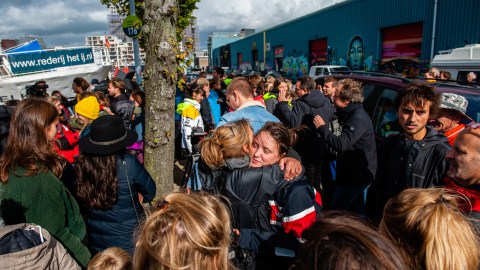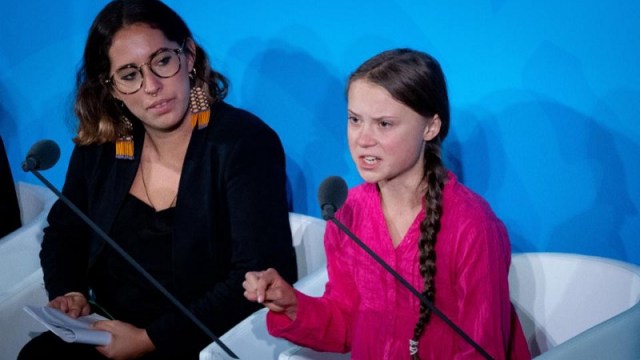Why the biggest pledges on emissions are from the smallest countries

Ana Fernandez/SOPA Images/LightRocket via Getty Images
- Several small countries have joined a pledge to reach net zero emissions by 2050, despite the difficulties.
- While the larger countries have promised some emissions cuts and funding for green energy, they have yet to match the pledges of the small countries.
- Several studies have found that poorer countries will be hit harder by climate change than the richer ones.
In case you haven’t heard, climate change is real, terrible, and coming for us all. The costs in both money and human misery are climbing rapidly, and time is running out to do something about it.
Recently, young people around the world demonstrated for climate action. In cities around the world, hundreds of thousands turned out to try and force those in power to do what they should have done years ago. Not to be outdone, some of the smallest countries on the planet did something similar at the United Nations.
The Mice that Roared
President Hilda Heine of the Marshall Islands, a small nation of 50,00 people, announced that her country would reach net zero emissions by 2050. Given the country’s lack of land, resources, and current dependence on imported fossil fuels, this is a substantial goal.
Her nation was joined in its pledge by more than a dozen other small countries — Belize, Costa Rica, Denmark, Fiji, Grenada, Luxembourg, Monaco, the Netherlands, New Zealand, Norway, Saint Lucia, Sweden, Switzerland, and Vanuatu.
They join 45 other nations that have promised to reach zero net emissions by 2050. While this is a promising start, these 60 countries accounted for only 11 percent of global carbon emissions in 2017, meaning that the results of their efforts will be limited.
The large nations of the world were represented by India, a middle-income country which promised to increase the share of their electricity produced by renewables, and Germany, which will be investing $60 billion in clean energy over the next decade. Russia said they would ratify the Paris Agreement but said nothing more.
China merely pledged to continue sticking to its previously agreed to policies while calling out those who were doing nothing. France implied they had no interest in free trade deals with countries that leave the Paris Agreement. The United States, whom the French attempted to call out, contributed little to the discussion.
Before you go away thinking the big countries didn’t do anything at all, there was the promise of more money from a few of them for the Green Climate Fund. South Korea, Germany, and the U.K. all announced plans to double their contributions, while other larger nations promised to spend more without going quite so far.
Why would the little do this? The expense must be terrible.
They have no choice.
The effects of climate change will be worse for the poorer nations of the world than for the richer ones, as several studies have indicated. This means that while the above-listed countries have contributed little to the crisis and have minimal resources with which to fight, they are also poised to suffer the most from inaction.
Several of the countries mentioned above are also at a higher risk for damage from rising sea levels than others. Consider the Marshall Islands; you don’t have to know much about them to grasp that rising sea levels will be terrible for them. The word “islands” is in the proper name after all. The Netherlands, already noteworthy for having one-third of their landmass below sea level, is also, well, screwed, if sea levels rise too much.
If nothing is done, climate change will affect every aspect of our lives and make the world a much less pleasant place to live. The countries with the most to lose are taking up the mantle of solving the problem, but it is unlikely to be enough. The largest nations, which are also responsible for most of the pollution, will have to follow in the footsteps of the smallest ones if there is to be hope for progress.





